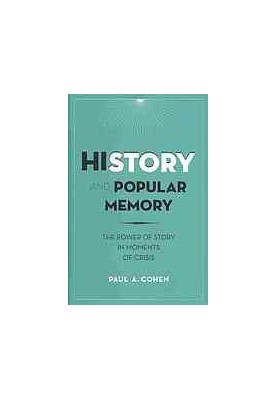History and popular memory : the power of story in moments of crisis
 Instant download
Instant download
after payment (24/7)
 Wide range of formats
Wide range of formats
(for all gadgets)
 Full book
Full book
(including for Apple and Android)
"When people experience a traumatic event, such as war or the threat of annihilation, they often turn to history for stories that promise a positive outcome to their suffering. During World War II, the French took comfort in the story of Joan of Arc and her heroic efforts to rid France of foreign occupation. To bring the Joan narrative more into line with current circumstances, however, popular retellings modifiedthe original story so that what people believed took place in the past was often quite different from what actually occurred. Paul A. Cohen identifies this interplay between story and history as a worldwide phenomenon, found in countries of radically different cultural, religious, and social character. He focuses here on Serbia, Israel, China, France, the Soviet Union, and Great Britain, all of which experienced severe crises in the twentieth century and, in response, appropriated age-old historical narratives that resonated with what was happening in the present to serve a unifying, restorative purpose. A central theme in the book is the distinction between popular memory and history. Although vitally important to historians, this distinction is routinely blurred in people's minds, and the historian's truth often cannot compete with the power of a compelling story from the past, even when it has been seriously distorted by myth or political manipulation. Cohen concludes by suggesting that the patterns of interaction he probes, given their near universality, may well be rooted in certain human propensities that transcend cultural difference."--Publisher's description.Abstract: "When people experience a traumatic event, such as war or the threat of annihilation, they often turn to history for stories that promise a positive outcome to their suffering. During World War II, the French took comfort in the story of Joan of Arc and her heroic efforts to rid France of foreign occupation. To bring the Joan narrative more into line with current circumstances, however, popular retellings modified the original story so that what people believed took place in the past was often quite different from what actually occurred. Paul A. Cohen identifies this interplay between story and history as a worldwide phenomenon, found in countries of radically different cultural, religious, and social character. He focuses here on Serbia, Israel, China, France, the Soviet Union, and Great Britain, all of which experienced severe crises in the twentieth century and, in response, appropriated age-old historical narratives that resonated with what was happening in the present to serve a unifying, restorative purpose. A central theme in the book is the distinction between popular memory and history. Although vitally important to historians, this distinction is routinely blurred in people's minds, and the historian's truth often cannot compete with the power of a compelling story from the past, even when it has been seriously distorted by myth or political manipulation. Cohen concludes by suggesting that the patterns of interaction he probes, given their near universality, may well be rooted in certain human propensities that transcend cultural difference."--Publisher's description
LF/306990781/R
Data sheet
- Name of the Author
- Cohen
England König Heinrich V
Goujian
Nevskij Aleksandr
Paul A.
Yue König Goujian
d'Arc Jeanne
of Arc Saint Joan - Language
- English
- ISBN
- 9780231537292
- Release date
- 2014

























